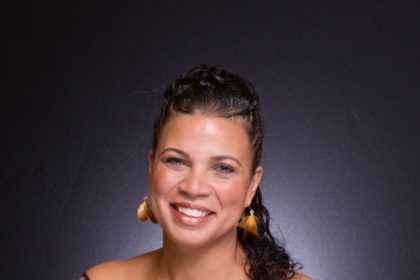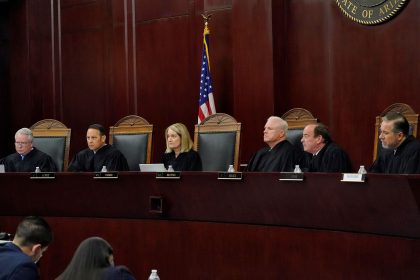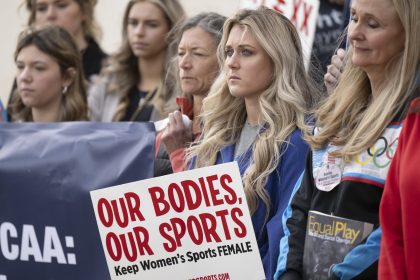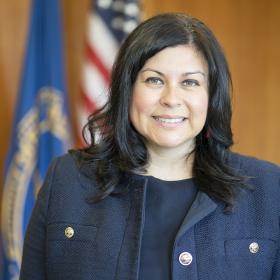Biden, Harris Celebrate Americans with Disabilities Act
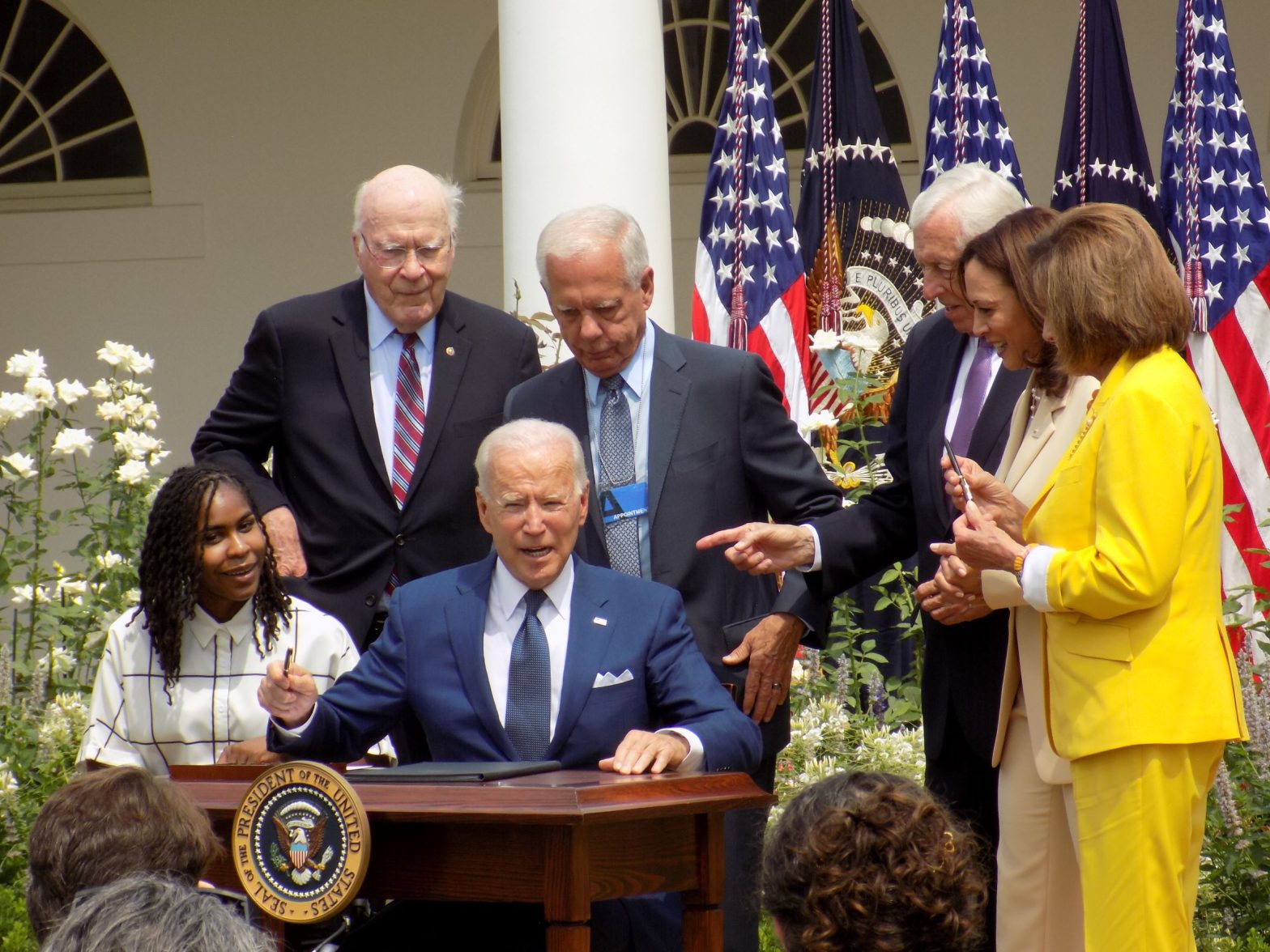
WASHINGTON — President Joe Biden celebrated the 31st anniversary of the Americans with Disabilities Act Monday and announced new guidance suggesting long-term COVID-19 could be considered a disability in some cases under federal civil rights laws.
“For our nation, the ADA is more than a law … It’s a testament to our character as a people, our character as Americans,” Biden said in a Rose Garden gathering at which Vice President Kamala Harris also spoke.
Biden, then a Senator, was a co-sponsor of the legislation, which prohibits discrimination against individuals with disabilities in various settings, including places of employment, schools, community living and transportation.
“Thirty-one years after its passage, many Americans have never lived in a world without the ADA. Generations have grown up not knowing a time before it existed,” Biden said.
“But many of us can still recall an America where a person with a disability was denied service in restaurants and grocery stores, and could be; where a person using a wheelchair couldn’t ride on a train or take a bus to work or to school; where an employer could refuse to hire you because of a disability. An America that wasn’t built for all Americans.
“Then we passed the ADA and made a commitment to build a nation for all of us. All of us,” the president said.“ And we moved America closer to fulfilling that promise of liberty and justice, and maybe most importantly, dignity and equality for all.
“Perhaps most importantly, we did it together. This was a Democratic bill signed by a Republican president. A product of passion and compassion, not partisanship. Progress that wasn’t political, but personal, to millions of families,” Biden added.
Then-President George H.W. Bush signed the federal civil rights act into law in 1990, and Biden noted he had just gotten off the phone with former Sen. Tom Harkin, D-Iowa, and had spoken to former Sen. Bob Dole, R-Kan., a few days ago.
Both former senators spearheaded the legislation at the time and ensured its passage was a bipartisan effort.
“We made important progress, but we still have work to do. We have to keep going to ensure that every single American has a chance to contribute their talents and thrive and succeed,” Biden said.
“Today, too many Americans still face barriers to freedom and equality. But thanks to this movement that spans all races, beliefs, backgrounds, and generations, we’re once again making progress together,” he said.
The president recalled that on his first day in office, he signed an executive order to establish a government-wide commitment to advancing equity, including for those with disabilities.
“I was proud to appoint the first-ever White House Disability Policy Director, Kim Knackstedt. … and I’m ensuring that the dignity and rights of disabled Americans are lifted up in every policy we pursue, from continuing to make sure that this administration looks like America, to appointing people with disabilities to positions across the government, to [providing] substantial support for schools that better serve students with disabilities [and] expanding access to vaccines for disabled Americans,” Biden said.
“As part of my Build Back Better plan, we’ve proposed $400 billion to expand access to home- and community-based care … helping people with disabilities and older adults live more independently,” the president continued. “And because of additional executive orders I’ve signed, we’re working to remove barriers that hold back disabled Americans from exercising their sacred right to vote.
“And we’re ensuring that the federal government is a model employer when it comes to wages, accommodations, and opportunities to advance people with disabilities. That’s a firm commitment,” Biden said.
As for the new effort announced Monday, an initiative Biden called “the first of its kind,” the president said health professionals and his administration realized over the course of the pandemic that many Americans who seem to have recovered from the virus, still face “lingering challenges like breathing problems, brian fog, chronic pain, and fatigue.
“These conditions can sometimes — sometimes — rise to the level of a disability,” he said.
“So, we’re bringing agencies together to make sure Americans with what the doctors call ‘long COVID,’ who have a disability, have access to the rights and resources that are due under the disability law.
“This includes accommodations and services in the workplace, in school, and our healthcare system, so they can live their lives in dignity and get the support they need as they continue to navigate these challenges,” the president said.
The guidance does not automatically qualify long COVID-19 as a disability but people experiencing long-term symptoms or conditions can get an “individualized assessment” to determine the condition “substantially limits a major life activity.”
The Departments of Health and Human Services and Justice also released guidance on Monday about services provided by community-based organizations to help individuals experiencing long-term symptoms after contracting COVID-19.
“We made important progress but we will have work to do,” Biden said, calling for Congress to eliminate the “discriminatory” sub-minimum wage provision.
Biden then signed a proclamation recognizing the 31st anniversary of the bill being signed into law. He called those dealing with disabilities an “inspiration.”
Joining him on the dais were Vice President Harris, House Speaker Nancy Pelosi, D-Calif., House Majority Leader Steny Hoyer, D-Md., former Rep. Tony Coelho, D-Calif., Sen. Patrick Leahy, D-Vt., and Tyree Brown, a 26-year-old Christian visual artist who was rendered quadriplegic after a 2015 car accident.
All of the lawmakers on the stage played a role in the ADA’s passage.
Prior to the president’s remarks, Vice President Harris said, “The ADA gives all Americans the opportunity to determine their own future.”
“Self-determination, which I believe the government must facilitate, is the impact of the ADA and, after all, the promise of America,” she said.
Like the president, Harris described the ADA as “a very important beginning,” but said there is more work to be done.
“The president and I will continue to fight with you to make America more accessible to all people,” she said.


















